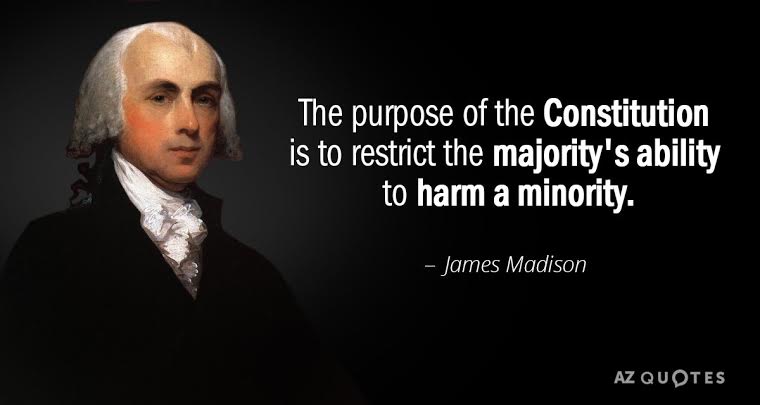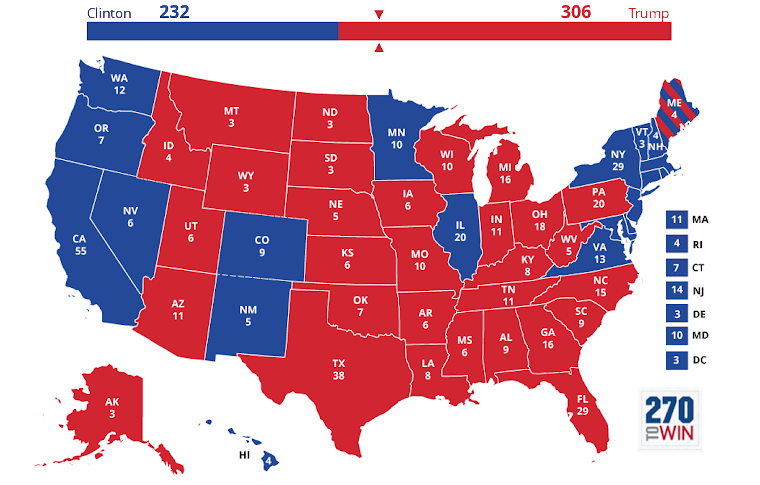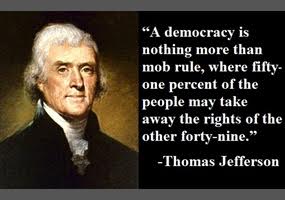The United States of American is a republic. A republic is a country governed by the rule of law and not of men. The rule of law “means that people are subject to a known set of written laws. This is distinguished from the rule of man, (which is) most notably exemplified by an absolute monarchy.” (1) In such a case, a person governing a nation “could issue any decrees he like, (and) repeal or amend such decrees at any time.” (1)
The United States is also a democracy, but it is not a pure democracy. A pure democracy is defined as a country “in which the power is exercised directly by the people rather than through representatives.” (2) Athens represents an ancient example of a pure democracy because its citizens acted as the lawmakers, without elected representatives. (2)

Our founding fathers never intended for the United States to be a pure democracy. While treasuring the ideals of pure democracy, they nevertheless, felt the need to protect the country against what is called “mob rule,” or the power of factions. James Madison, in the Federalist Papers, defined a faction as “a number of citizens, whether amounting to a majority or minority of the whole, who are united and actuated by some common impulse of passion, or of interest, adverse to the rights of other citizens or to the permanent and aggregate interests of the community.” (3) In essence, he felt it a requirement to protect the rights of the minority from a hostile majority. In order to do so, our founding fathers put into place a system of checks and balances between the state and federal levels.
In order to balance their desire for a republic, combined with the ideals of a pure democracy, our founding fathers created a form of government called “representative democracy.” Representative democracy is defined as “a type of democracy founded on the principle of elected officials representing a group of people…” (4) It is meant to allow the populous to vote, while disallowing passions to come into the play of lawmaking. The founding fathers felt that the presence of representatives would allow cooler heads to prevail, during the legislative process. As a result, we have elections, where we vote for representatives, who subsequently vote on our behalf. Many feel that this is unfair, but it nevertheless encompasses the intent of our founding fathers.

The Electoral College is an example of representative democracy at the highest levels of government. Essentially, each state, individually, votes for president. The number of representatives applied to that state, based on population, then take their results to the Electoral College. The presidential candidate who receives 270 electoral votes subsequently wins. (5)
The utilization of the Electoral College during our presidential elections combines the tenants of pure democracy on the state level, with the desire for a republic on the national level, through the safeguards of representative democracy. For example, a state may vote individually for one presidential candidate, based on the popular vote, and therefore have its collective representatives cast its electoral vote for that candidate on the national level. However, this does not necessarily mean that said candidate will take all of the states and subsequently win. In this case, the desire for a republic is balanced with the ideals of a pure democracy, through the exercise of democratic representation.

The United States is both a republic and a democracy, which is what our founding fathers intended. Essentially, in order to balance the rights of the states with the powers of the federal government, our founding fathers created what is now known as a “representative democracy.” During our presidential election, the Electoral College executes the desire for a republic on the national level, with the ideals of a pure democracy on the local level. In doing so, our founding fathers respected the will of the states, while putting into place safeguards against “mob rule.” In short, the Electoral College works, just as our founding fathers intended.


